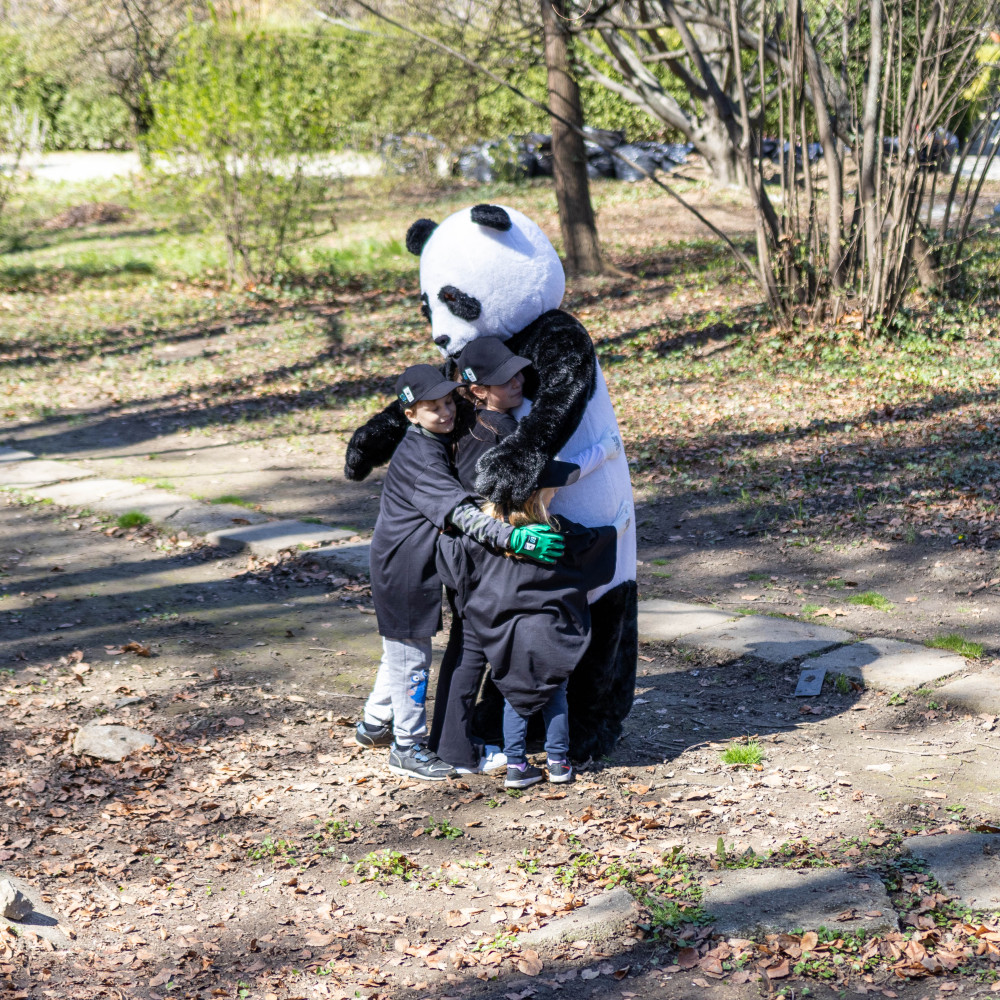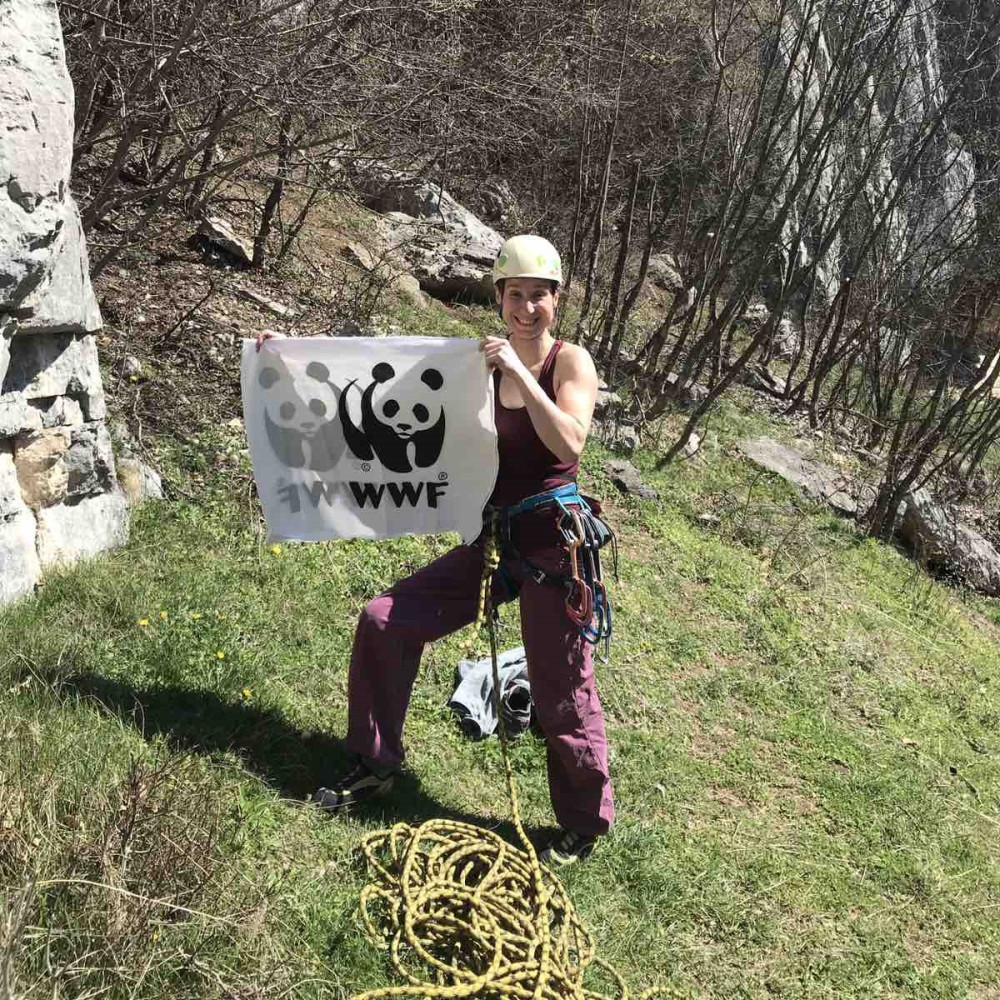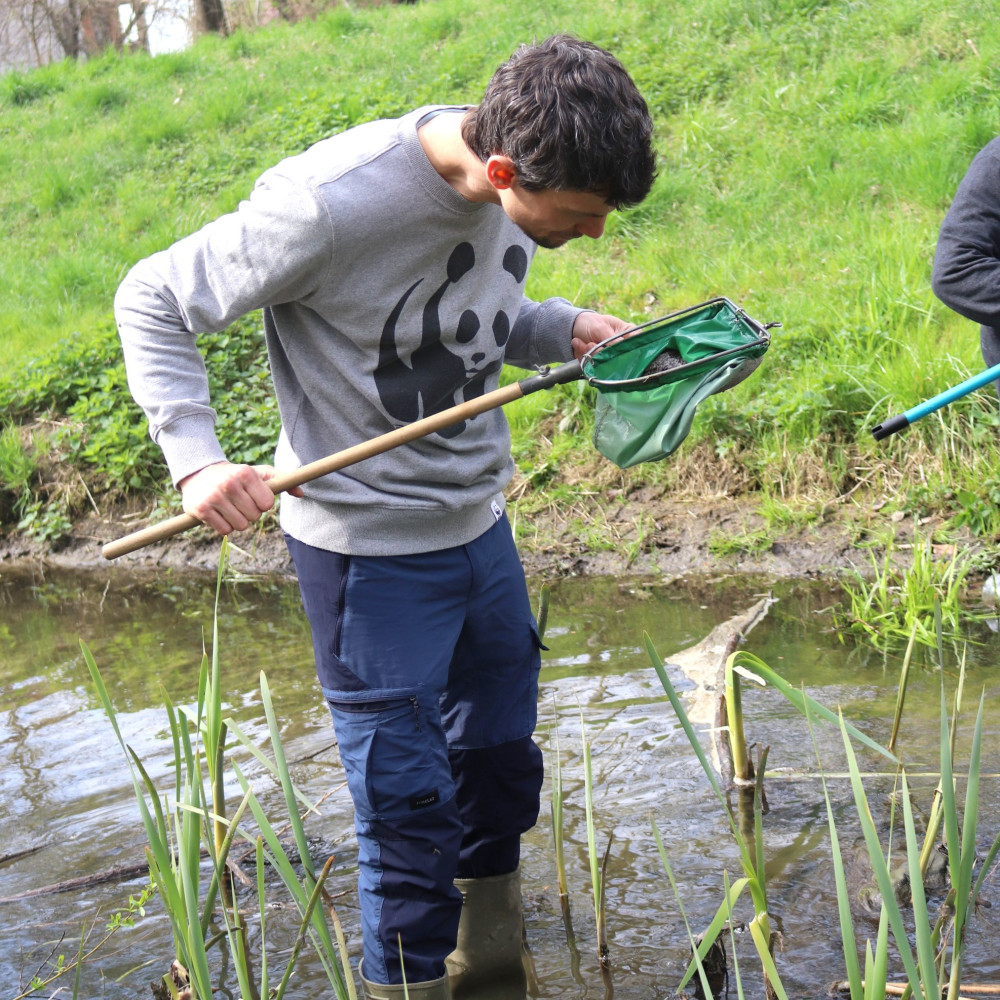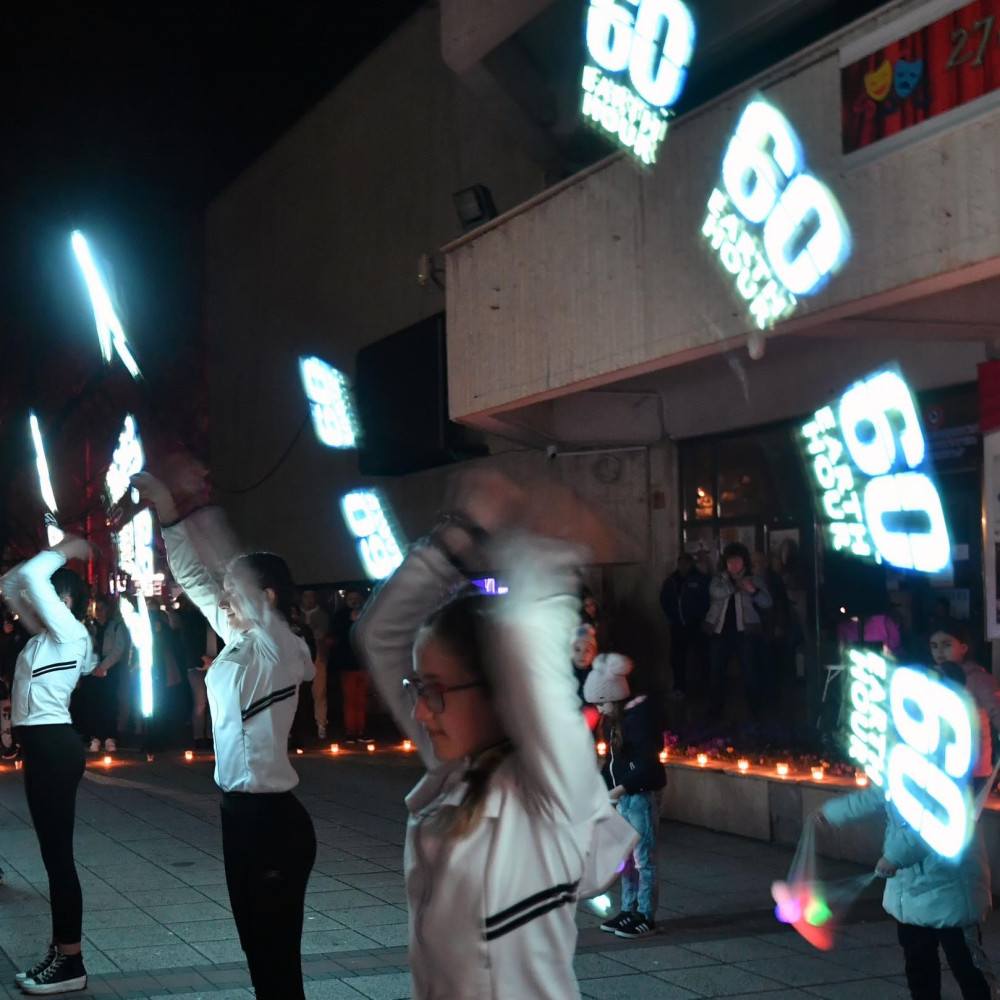Our efforts made waves, with #EarthHour trending across major search engines in 25 countries—six more than last year! Meanwhile, iconic landmarks like the Acropolis, Sydney Opera House, Empire State Building, Shah Faisal Mosque, and Tokyo Tower dimmed their lights, drawing the world's attention to the need to take action for our 2030 Nature Positive goals. Together, we rallied our communities to connect with, care for, learn about and restore our planet - and created the Biggest Hour for Earth in the process.
In the Green Heart of Europe, once again we demonstrated commitment to environmental stewardship through active participation in Earth Hour 2024. From Bulgaria to Ukraine and everywhere in between, communities rolled up their sleeves to clean up neighborhoods, taught the art of recycling and upcycling, planted countless trees, and embraced nature through mindful activities and movement.
|
(c)WWF-Romania |
(c)WWF-Bulgaira |
(c)WWF-Hungary |
(c)Razgrad cheerleaders |
In Bulgaria, the enthusiasm for Earth Hour was palpable as 1066 individuals collectively contributed 3959 hours towards environmental initiatives. Notably, 250 people attended two charity screenings of Kung Fu Panda 4, organized with the WWF-Bulgaria team to support Earth Hour. Fifty municipalities across the country joined the cause by switching off emblematic buildings and hosting events.
Sofia, the capital, illuminated its iconic buildings in darkness, while the traffic lights formed a heart-shaped green symbol in the city center, symbolizing love for the planet.
Romania witnessed widespread participation in Earth Hour, with 107 cities organizing local activities and turning off lights to mark the event. Over 50,000 individuals actively engaged in various events, including a notable turnout of 59 volunteers at the Botanical Garden event in Bucharest.
Schools played a pivotal role in spreading awareness, with 202 institutions and 4950 students participating in this activities such as the "Planet-based picnic", organized by WWF-Romania. The Earth Hour message reverberated across digital platforms, with influencers supporting the cause and the #OraPamantului2024 hashtag garnering over 800 mentions, while the hours given to the Earth Hour Bank reached 2367 in total.
In the Czech Republic, the WWF-team supported an organic online campaign which saw 18 municipalities actively participating in Earth Hour initiatives. The Hour Bank recorded a total of 160 hours contributed by 44 individuals, reflecting a community-wide dedication to environmental causes. The campaign's digital footprint left a lasting impression, attracting over 2,000 visitors to the website with an average engagement time of nearly 10 minutes.
The WWF-Hungary team embraced Earth Hour through guided hikes to wetlands around Budapest, where participants engaged in ecological monitoring activities. The initiative provided an educational and enjoyable experience while fostering a deeper connection with nature.
Despite challenging circumstances, the WWF-Ukraine’s team redirected its Earth Hour focus towards supporting Ukraine's environment amid ongoing war. Collaborating with the Ministry of Environmental Protection and Natural Resources, Ukraine promoted educational materials and activities aimed at nurturing the nation's natural heritage during tumultuous times.
|
Can an hour change the world? As we like to say, it's up to us - and together, we sure did!
|
About Earth Hour
Born in Sydney in 2007, Earth Hour has grown to become the world's largest grassroots environmental movement, inspiring individuals, communities, businesses and organisations in more than 190 countries and territories to take actions for our planet. Visit www.earthhour.org to find out more about the activities that happened during this year’s Earth Hour.






.jpg)


.jpeg)


